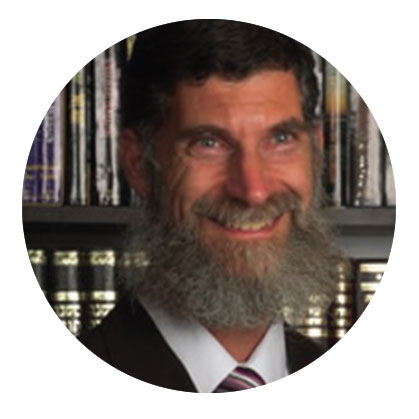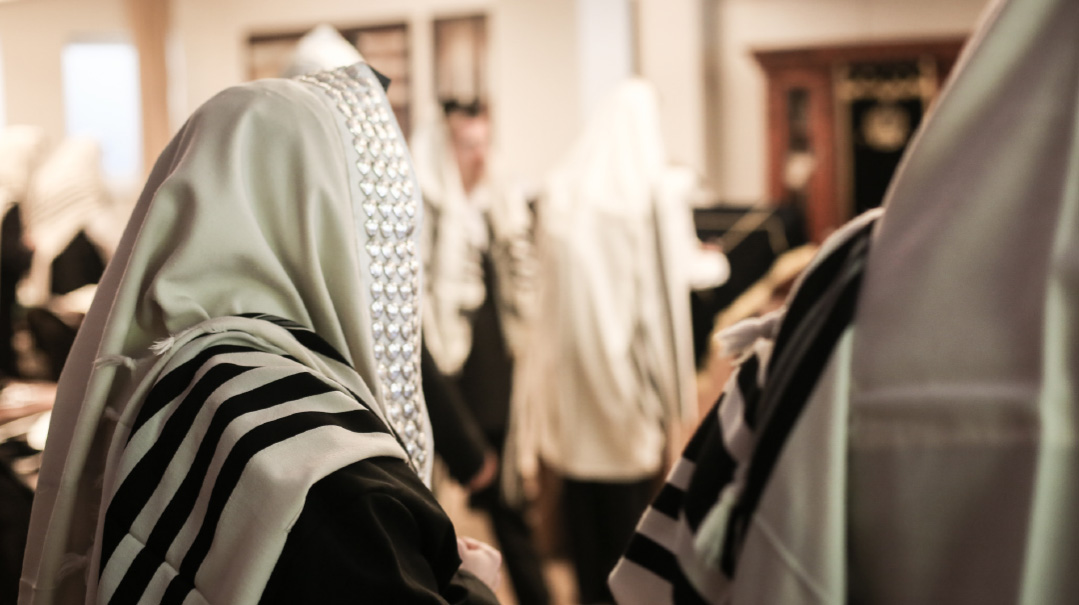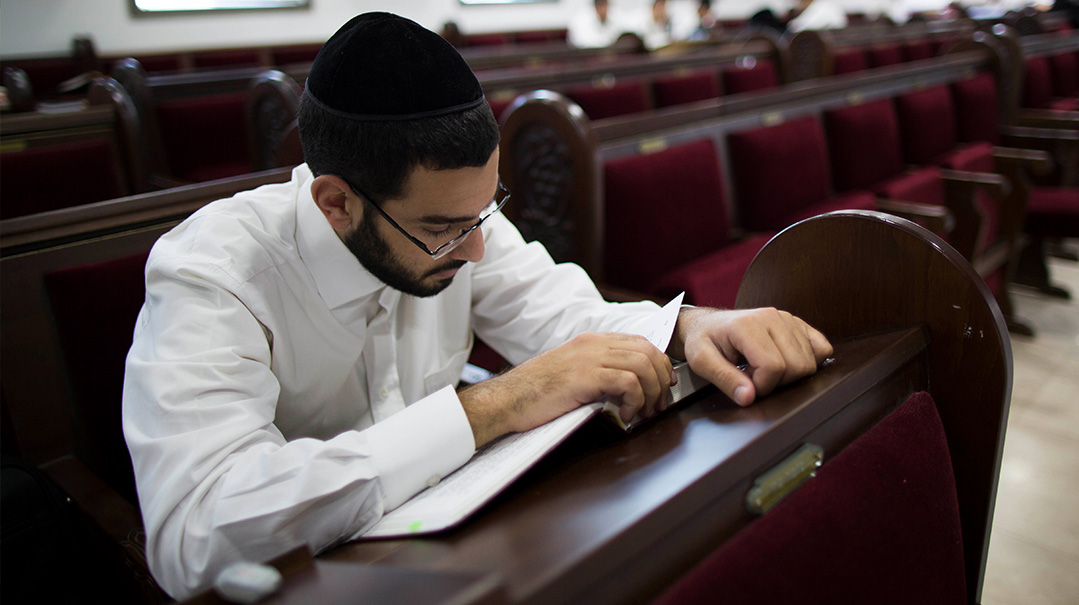He Missed the Ring But Got The Call


A Tribute for the Shloshim of Reb Shlomo Meir Teller z”l
My father Fred Teller — or as he preferred Shlomo Meir — was unmoved by spiffy sound bites or ornate language. Whenever he sought a rav for the shul he lovingly built (Young Israel of Stamford Connecticut) he was always looking for “a learner.” Notwithstanding his cum laude in classics from an Ivy League institution he was dubious about any candidate whose speech was too polished or overly florid. He was skeptical about those who could talk the talk but were clueless as to the walk; a plainspoken yeshivish “mistama” or “memeila” would put him at ease.
Shlomo Meir Teller walked all walks with refinement and dignity — including corporate America where regard is usually reserved for those who wield power control assets and know how to dominate a trifecta for which he was not even in the running. And yet even there he was deeply respected — indeed revered.
Shlomo Meir managed to escape Vienna after the Anschluss with just his sister. They were two young teenagers — he was barely 13 — in New York City on their own. He made it his first priority to learn accent-free English and got himself admitted to night school at Columbia University. During the day he worked giving a portion of his wage to cover his sister’s accommodations until he was drafted into the United States Army.
This brought him back to his birthplace at the time of its Allied liberation. It is my estimation that he was not a stellar soldier lacking the moxie and bravado of the typical GI Joe. But as he was highly intelligent and had the requisite language skills he was recruited into military intelligence (OSS predecessor of the CIA). He used this position to accord any favor he could to a fellow Jew until his career ended abruptly when he brokered for Jewish officers in the Russian army to defect to the American sector of Vienna.
These Russian Jews were eager to abscond but they wanted to bring their families. My father secured an agreement from his superiors acceding to this request but on the day of the defection the Americans reneged and stipulated “officers only.” Shlomo Meir was so crushed by this dishonesty that he quit working for Uncle Sam.
He then began working for the Joint Distribution Committee where there were no official restrictions on what he could do for fellow Jews. While the realities of postwar Europe made nothing easy his intimate knowledge of American military workings gave him an insider’s advantage in tracking the vast surplus of army supplies across Europe. What he would do next would require calm nerves and supreme coordination but he was after all trained in clandestine operations.
He borrowed a few small items… like jeeps trucks and platoon-size tents — and sent them on to a small nation fighting for its independence. In North Africa he worked on smuggling Jews to that same destination.
The ex-soldier may have been assisted in taking these liberties because the woman he was courting — who would be my mother Edna Lichtenstein — was a lieutenant in the army (as were all nurses in the Women’s Army Corps but I was showing off).
My awareness of his postwar activities came about by accident from a man who preferred at all costs not to talk about himself. The first time we traveled together to Jerusalem I began explaining why the road at Bab el Wad is littered with the detritus of ill-fated convoys trying to transport supplies.
My father looked at me and commented atypically “You’re trying to explain this to me? I brought these vehicles here.” On this subject — as on any other involving his assistance to others — he would speak no more.
My father surely did not have a monopoly on letting his actions speak louder than his words but he excelled not only in refraining from discussing what he did for others but also in promptly forgetting about it. He never kept an accounting in either the literal or the figurative sense. A talmid from the Stamford yeshivah related to me that he could only afford to fly in one rosh yeshivah for his out-of-town wedding so my father flew in the other. When I asked my father about this not only did he not recall it he wasn’t even curious.
Notwithstanding his quiet and refined nature if the honor of the Almighty or of others was at stake he knew how to voice opposition. About 45 years ago a Jewish community center in a nearby town was conducting its annual carnival on a Sunday that fell on Tishah B’Av. Sam Shoshan a”h (of early JDL fame) declared that this must be protested and my father agreed.
So did many others but when it came to actually protesting the scene was reminiscent of the zekeinim approaching Pharaoh; by the time the promised caravan of cars arrived at the JCC it was no longer a caravan. One guy had to get gas another guy’s dog needed an emergency appendectomy Berel wanted to look if he had a dog Shmerel had to check the tire pressure of his spare 12 other guys got lost and only Teller was left to protest.
He held his poster aloft and picketed every ride and attraction ruining everyone’s party. (I was the kid hiding in the corner pretending I wasn’t related.) He had no problem phoning up perfect strangers and informing them that they must join the minyan. These individuals demanded indignantly “And who are you?”
He had a response that disarmed them and assured their attendance: “The candy man.” A watershed event in his life was when the Bais Binyamin yeshivah moved to Stamford in 1976. On that very day he set about selling the family home and bought an apartment adjacent to the yeshivah. Virtually overnight he became the right hand of Rav Dovid Hersh Mayer ztz”l. The roshei yeshivah loved him as did the bochurim who would often come to my parents’ apartment for nourishment and nurturing.
When my father was privileged to make his first siyum it was a simchah for the entire yeshivah. The yeshivah hired a band adorned several tables with carbohydrates and erupted into dancing that was so lively that my (non-teenage) father fell several times.
This was an auspicious launch of an avocation that would become a full-time pursuit. Until then his learning had been more or less relegated to his daily commute to Manhattan his nightly visit to the yeshivah and whenever he could squeeze in a few minutes at the office. Back in the 1980s the telephone was the fulcrum of the wholesale garment industry. One met with the buyers in the showroom (and my father was one of the few to wear a yarmulke in those days in the garment center) but the bulk of commerce was conducted over the phone.
If the phone rang it was never ignored. It represented an order a UPS delivery update or any other issue crucial to running the business. One notable day my father was seated at his desk with an open Gemara when the phone rang. In those days there were no flashing lights on the console but this particular telephone would clang with that strange European urgency: RING-RING RING-RING RING-RING!
Yet my father utterly immersed in the words of the Sages did not hear the contraption pealing just two feet away. An office worker asked him why he was not answering the call. And it was only then… that he heard the ring. It was a transmogrification in silk the point of metamorphosis or in colloquial parlance: The moment he flipped into being a septuagenarian-yeshivah bochur. Surely an apotheosis.
Rebbetzin Tziporah Heller used to speak of what she dubbed a “celestial phone call.” When you get an urge to do a mitzvah it is coming from On High. If you do not pick up the receiver they stop dialing.
This was the call my father heard loud and clear. The very next day my father began the process of closing — not selling — his business. He would devote the next two decades to full-time learning — and there was not a moment to delay. Everyone commented upon how Reb Shlomo Meir was perennially dignified refined and happy. He conducted and concluded a glorious life doing precisely what he wanted to do with no regrets and certainly no sense of entitlement. I distinctly recall one summer day when he was sitting on his porch eating some cottage cheese (plain ungarnished cottage cheese — straight from the tub to the plate) and remarked “I don’t deserve this!”
The man had experienced untold hardships and had built a life for himself brick by brick with no parental support or advantages to which many are accustomed. Yet for him eating simple cottage cheese as a free man was more than he felt he deserved. He echoed the same sentiment at every family simchah.
In his final eight days in the hospital he was sapped of strength and unable to speak. Nevertheless he thanked every nurse who poked and pricked him. “Shlomo how are you?” they would ask. “Excellent” he would reply weakly. He did not expect he never demanded; but he was always truly grateful and appreciative. Therefore he was constantly in a state of happiness and optimism.
Chazal teach that a man does not die with even half his material desires fulfilled. And yet and yet… my father hareini kaparas mishkavo left this world with everything he ever sought: living in Eretz Yisrael surrounded by adoring grandchildren soaring on the wings of Torah learning.
Rabbi Hanoch Teller who continues to learn in the Mir Yeshivah in Jerusalem is a renowned author and worldwide lecturer. He is an instructor in numerous Jerusalem yeshivos and seminaries a senior docent in Yad Vashem as well as an award-winning film producer. His latest book Heroic Children chronicling the lives of nine young Holocaust survivors has won two international awards.
(Originally featured in Mishpacha, Issue 641)
Oops! We could not locate your form.












